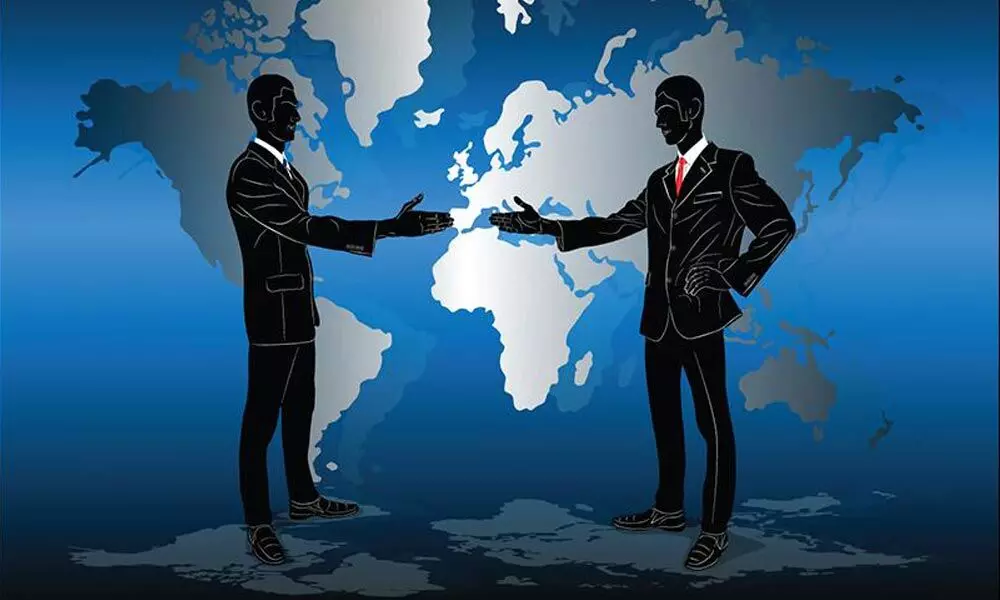Exempt developing nations from WTO dispute fold
The severity of the Covid crisis requires that govts are enabled to take the measures needed to control the human toll caused by the pandemic
image for illustrative purpose

New Delhi: Developing countries should be exempted from being taken to the WTO's dispute settlement panel if they implement trade measures that are necessary to deal with the Covid-19 pandemic, according to a concept paper submitted by India, Cuba and the African Union.
The paper - Strengthening the WTO to promote development and inclusivity - has been submitted to the World Trade Organisation (WTO). It said that such a moratorium on trade measures and flexibilities on intellectual property disciplines would have a clearly defined scope and should be maintained only temporarily for the duration of the Covid crisis.
It said that the severity of the crisis requires that governments are enabled to take the measures needed to control the human toll caused by the pandemic. The policy space is particularly important for developing countries since they lack the fiscal space, as per the communication submitted by these countries to the WTO. As against rich nations, developing countries have no other choice but to be more creative in their responses, including through the use of trade measures if those can be helpful, it said.
The trade regime should not penalise developing countries for taking action to support their citizens during such an extraordinarily difficult time, it added. "Developing countries should therefore be exempt from being taken to the WTO's DSB (dispute settlement body) if they implement trade measures that are essential and necessary in response to the pandemic," it said. It is recognised that intellectual property rights (IPRs) should be interpreted and implemented in a manner supportive of the right of members to protect public health and to promote access to medicines for all, the paper said. A WTO member or members can file a complaint against another member nation in the WTO's dispute settlement body, if they feel that a particular measure is against the norms of the organisation.
Bilateral consultation is the first step to resolve a dispute. If both sides are not able to resolve the matter through consultation, either can seek establishment of a dispute settlement panel. The panel's ruling can be challenged at WTO's appellate body, which is the final authority on such trade disputes. "Developing countries should preserve policy space to respond to the pandemic and to boost productive capacity to respond to their development objectives and needs. This includes key policy tools such as tariffs and export restrictions which must be implemented in accordance with their obligations under the covered agreements," it added.
To address Covid-19, developing countries should not be asked to relinquish their required trade policy space, such as through the permanent liberalisation of tariffs or agreement to end the use of export restrictions, it said. It also stated that the WTO reform does not mean accepting either inherited inequities or new proposals that would worsen imbalances. "Reforms must be premised on the principles of inclusivity and development and respond to the underlying causes of the current backlash against trade and the difficulties that developing Members continue to face vis-à-vis their industrialization challenges. Inclusivity would require, at a minimum, preserving consensus decision making in the WTO," it added.

